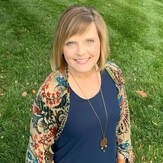|
If that question sounds odd to you or you have trouble answering, you’re not alone. Many of us give little thought to our relationship with self because we’re so focused on our relationships with others. Yet according to Dr. Caroline Leaf, neuroscientist and author of the bestselling books Cleaning Up Your Mental Mess and Switch on Your Brain, “At the end of the day your relationship with yourself will determine the quality and longevity of all other relationships, and ultimately your mental health and well-being.”[1] We can devote countless hours of time and energy to cultivating and improving relationships with others, but unless we’re cultivating a healthy relationship with self, our efforts will not bear long-lasting fruit. “At the end of the day your relationship with yourself will determine the quality and longevity of all other relationships, and ultimately your mental health and well-being.” —Dr. Caroline Leaf The truth is, we cannot have healthy relationships with others without a healthy relationship with self. Scripture supports this idea. Jesus said, “Love your neighbor as yourself” (Matthew 22:39), which implies that a loving relationship with self enables us to love others well. Some say that self-love is selfish and self-centered, and it can be when self is understood apart from our relationship with God. But healthy self-love, which flows from our identity as one who is deeply loved by God, is good and desirable and necessary for abundant living. Healthy self-love is knowing that we are a beloved child of God—one who is unconditionally and completely loved because of who we are, not what we do. In our performance-driven culture, accepting this can be more challenging than we may realize. Healthy self-love is knowing that we are a beloved child of God—one who is unconditionally and completely loved because of who we are, not what we do. Even if you are quick to affirm that you are a beloved child of God, perhaps you sometimes struggle to fully believe it. It may not always feel true in your daily life. At a recent retreat for women called Beloved, I invited each woman to complete this sentence anonymously: “I know God loves me, but…” They connected on common ground with honest and vulnerable responses such as these:
Do any of these statements resonate with you? Often, we give lip service to our identity as God’s beloved child without fully embracing and living from that identity. We know in our heads that God loves us, but we struggle to believe it in our hearts, especially in those moments when we feel we’re not “measuring up.” At the retreat we explored why head knowledge alone is never sufficient when it comes to knowing and believing God loves us. We must experience the love of God if it is to change the way we interact with ourselves and the world. We must experience the love of God if it is to change the way we interact with ourselves and the world. Scripture affirms it is our experience of God’s love, not our knowledge of it, that changes us: “May you experience the love of Christ, though it is too great to understand fully. Then you will be made complete with all the fullness of life and power that comes from God” (Ephesians 3:19) This verse speaks of the transformation that occurs when we receive God’s love—when it becomes lived experience rather than merely head knowledge. Experiential knowledge of God’s love is what heals us, making us complete or whole within. This transformation, first and foremost, is for our own good, because only when we love ourselves as God loves us can we love others the same way. Yet, how often do we wear ourselves out trying to love others without experiencing God’s love ourselves? How often do we wear ourselves out trying to love others without experiencing God's love ourselves? Simply put, self-love is allowing ourselves to be loved by God and then loving ourselves as God loves us. This brings us to an important question: How does God love us? Just as we are. Completely. Without condition. This is how God loves us, and this is how we are to love ourselves. If we’re struggling to love ourselves this way, it’s likely we’re not experiencing and receiving the unconditional love of God. If that’s true of you, what can you do? Here are a few ideas. Perhaps you might need to…
There are many other possibilities. The idea is to slow down, bring your authentic self to God, and let God love you however you need to be loved. As you become more aware of God’s love in the present moment, it will become easier to receive God’s love. And as it becomes easier to receive God’s love, it will become easier to love yourself. Loving yourself includes things such as...
So, let me ask you again: How’s your relationship with yourself? Rather than judging yourself, let this question be a gentle reminder to let God love you so you can love yourself as God does, with compassion and grace. Only then will you be able to “love others as yourself”—and cultivate healthy, long-lasting relationships. [1] Dr. Caroline Leaf, Instagram post, May 18, 2022.
0 Comments
|
Hi, I'm Sally!
I'm passionate about connecting with God and connecting with people, offering spiritual encouragement and companionship. I'm so grateful to be on the journey with you as we walk with God together. subscribeArchives
July 2024
Categories
All
|
|
Copyright 2019 Sally Sharpe Spiritual Direction |
Proudly powered by Weebly
|


 RSS Feed
RSS Feed
